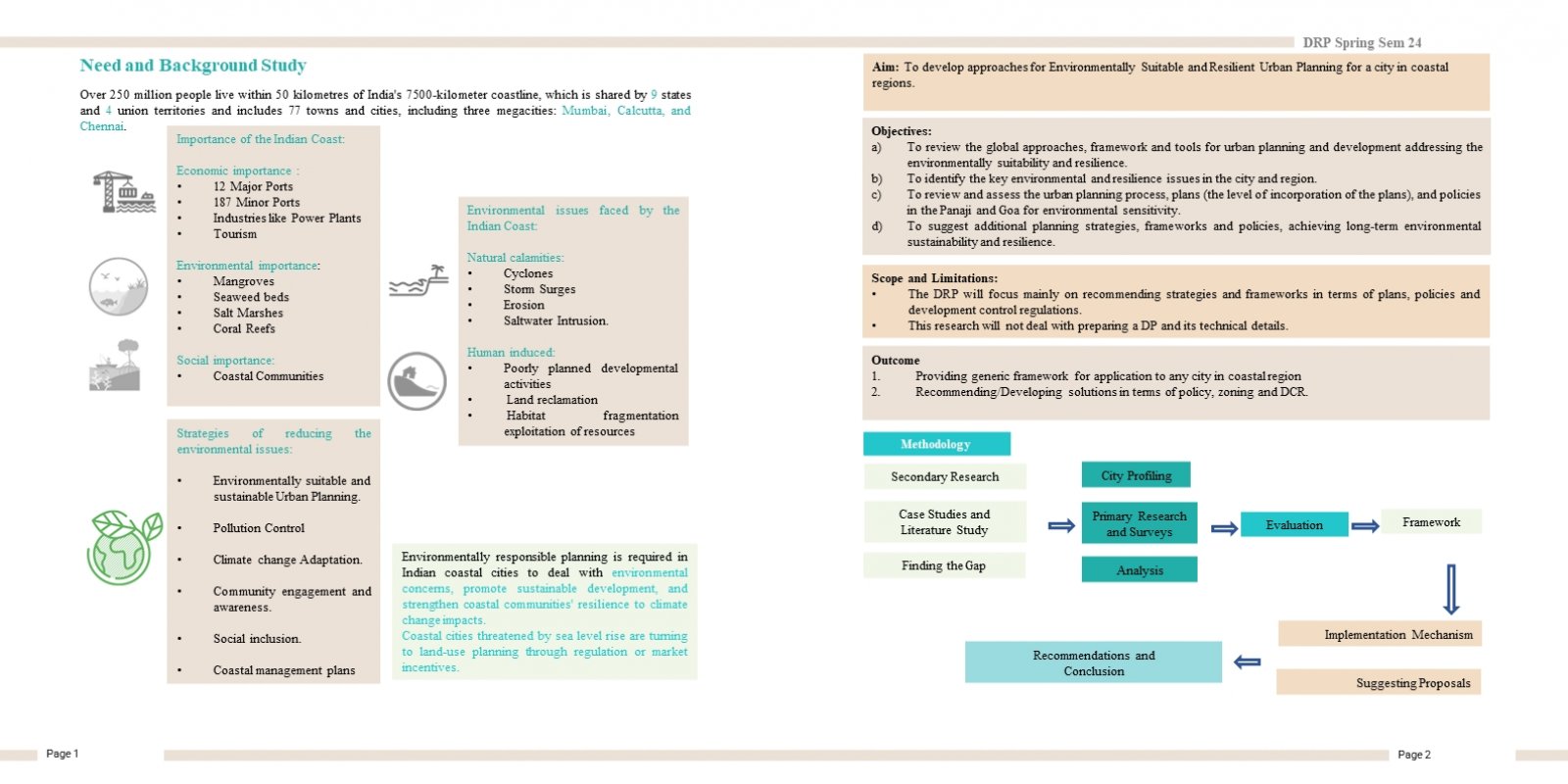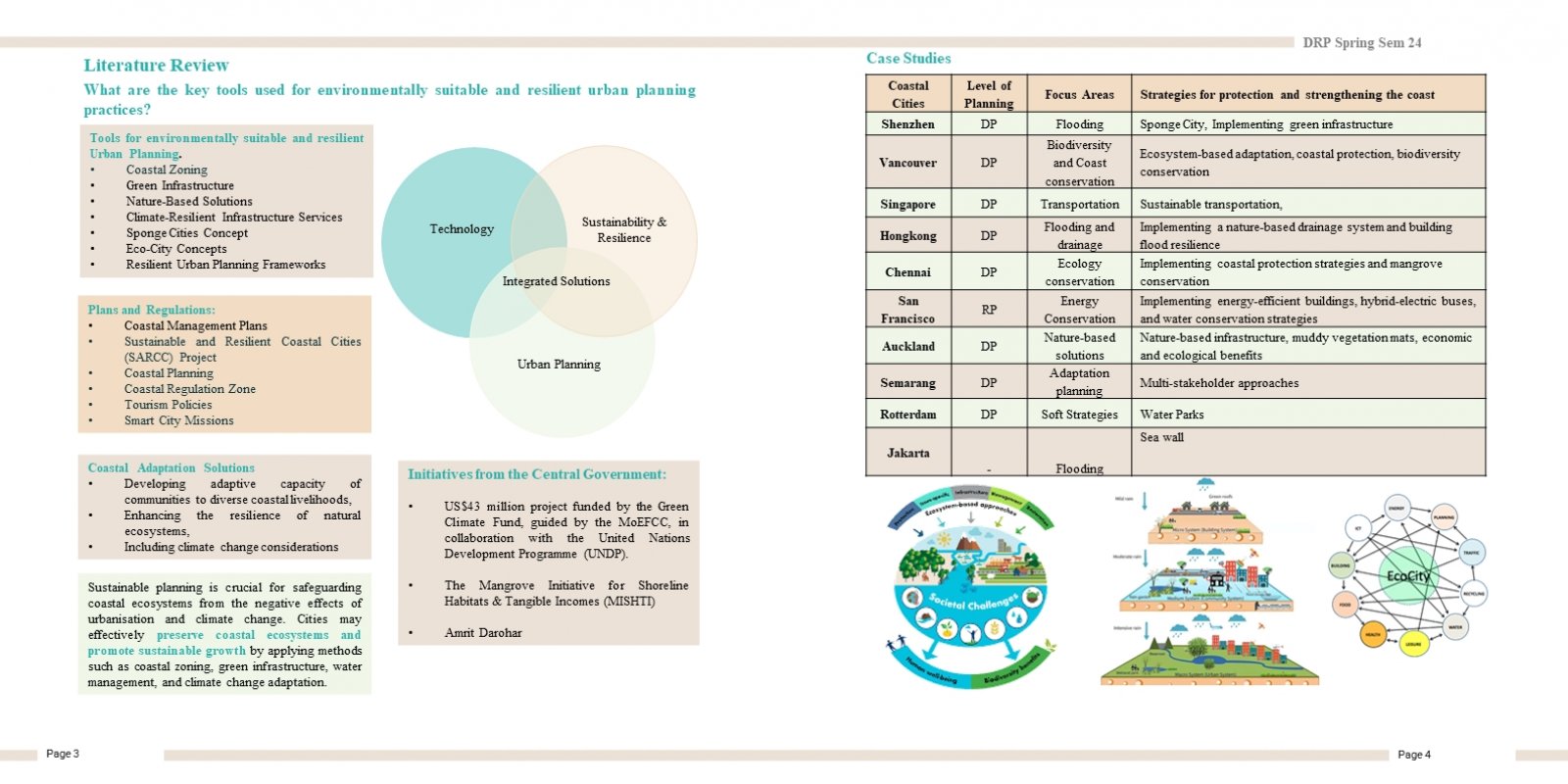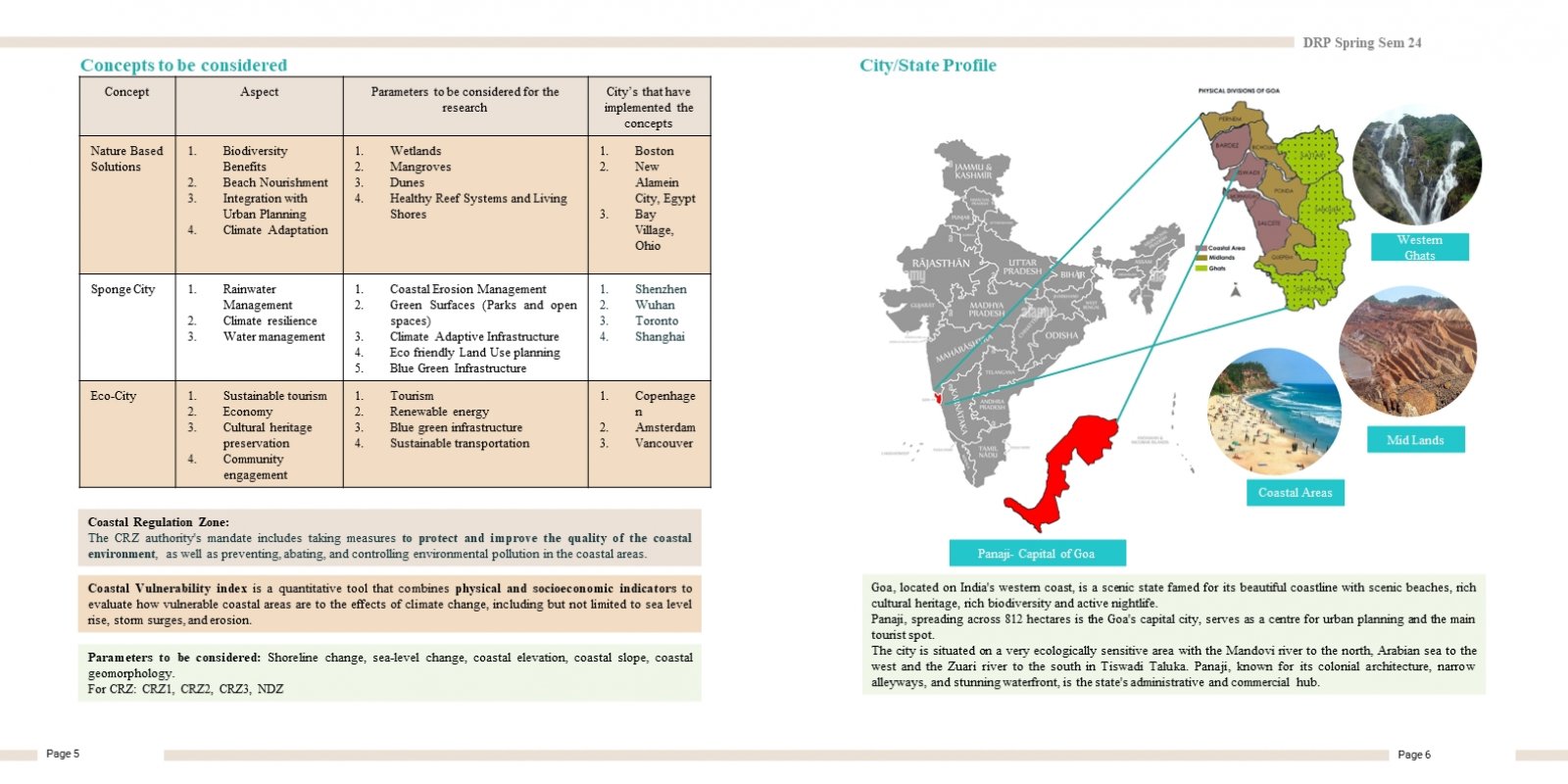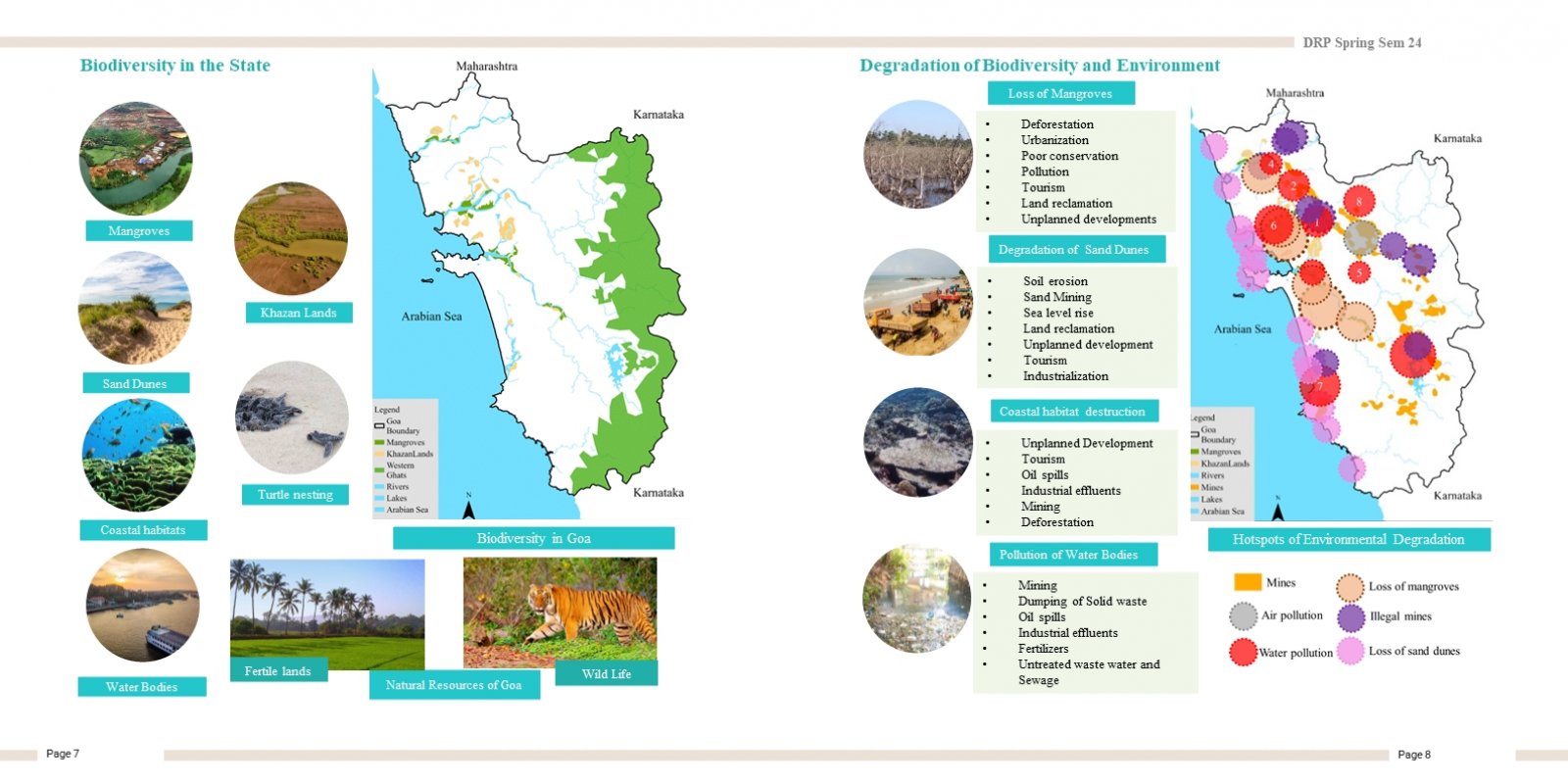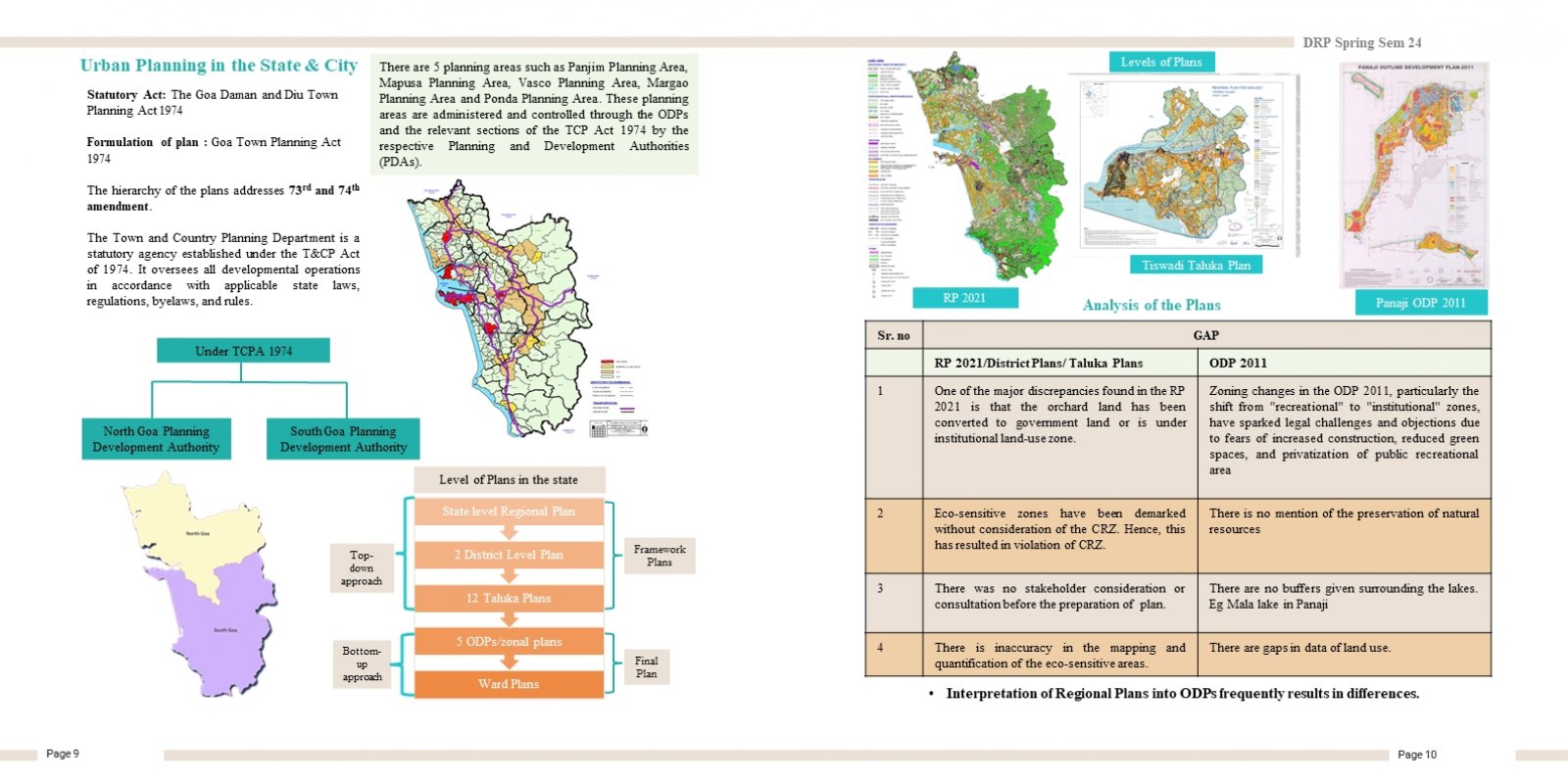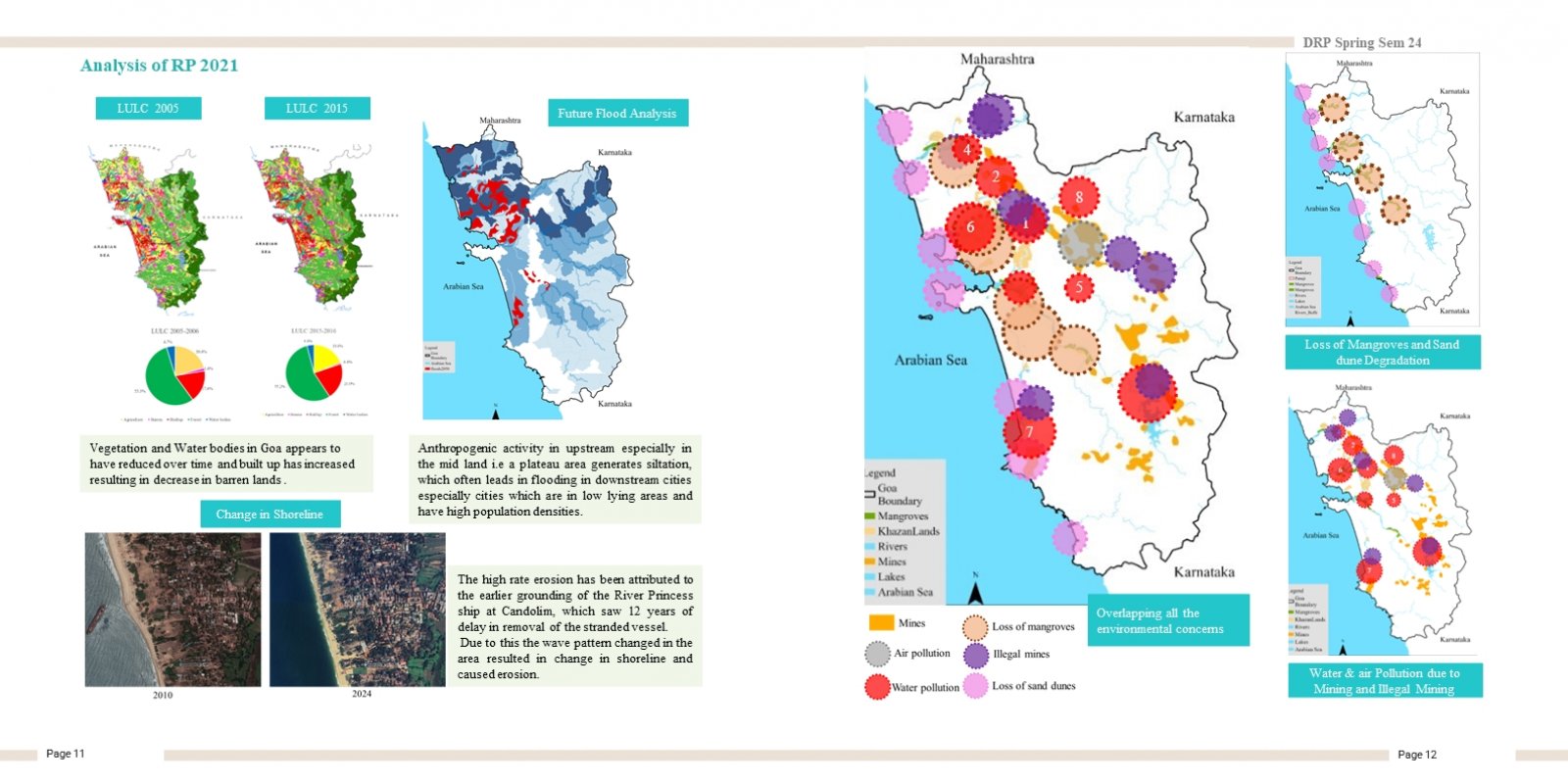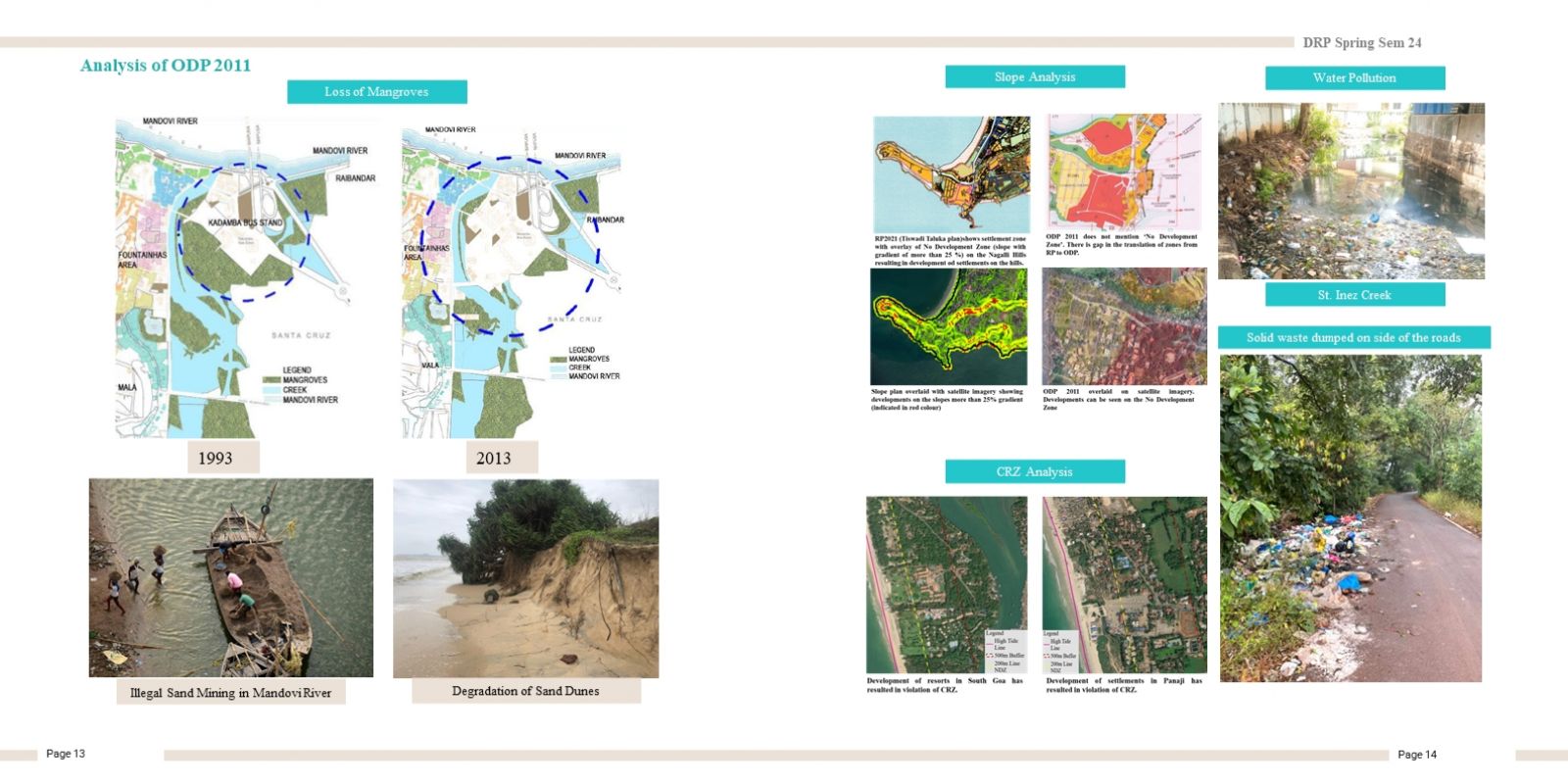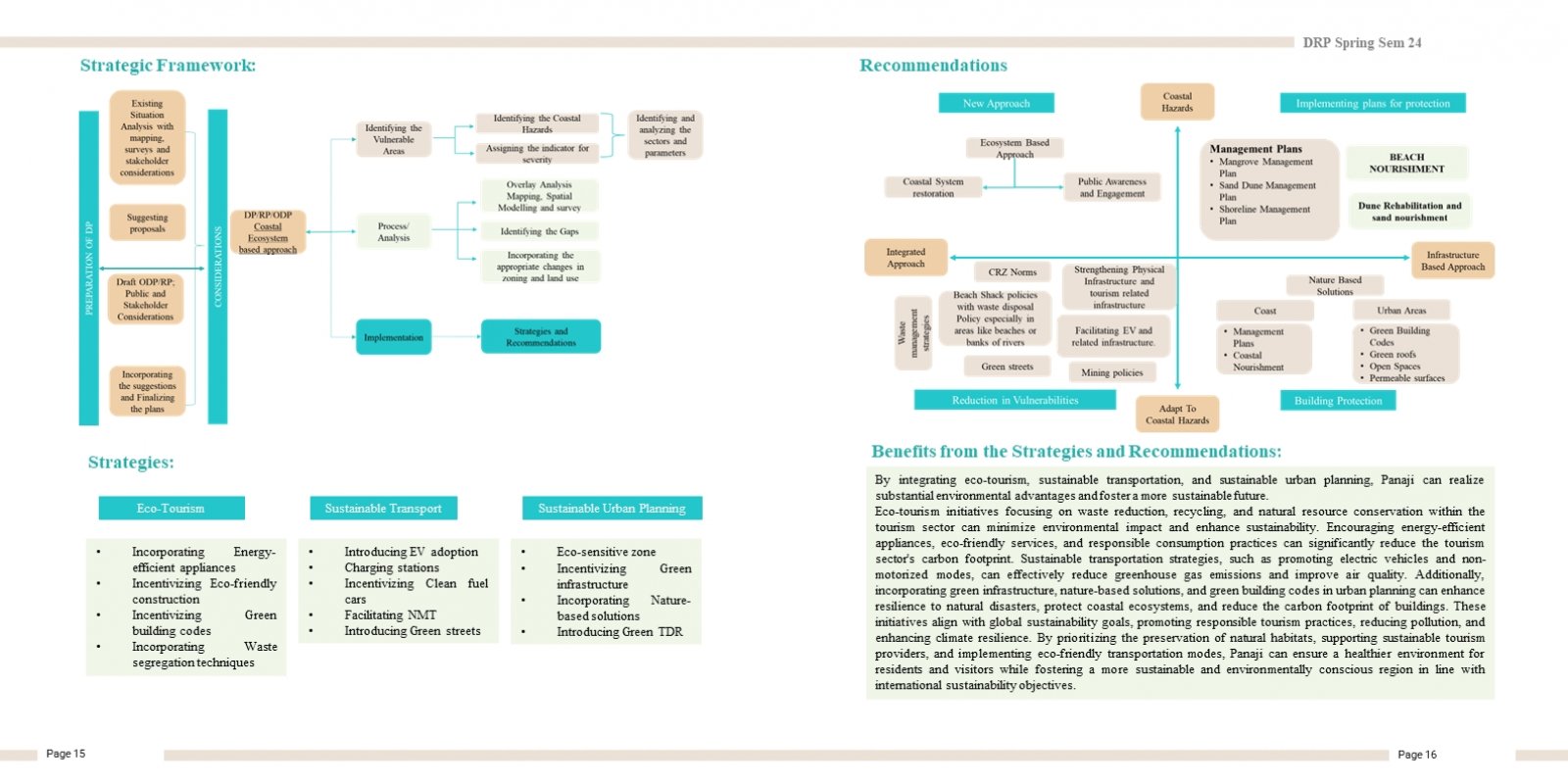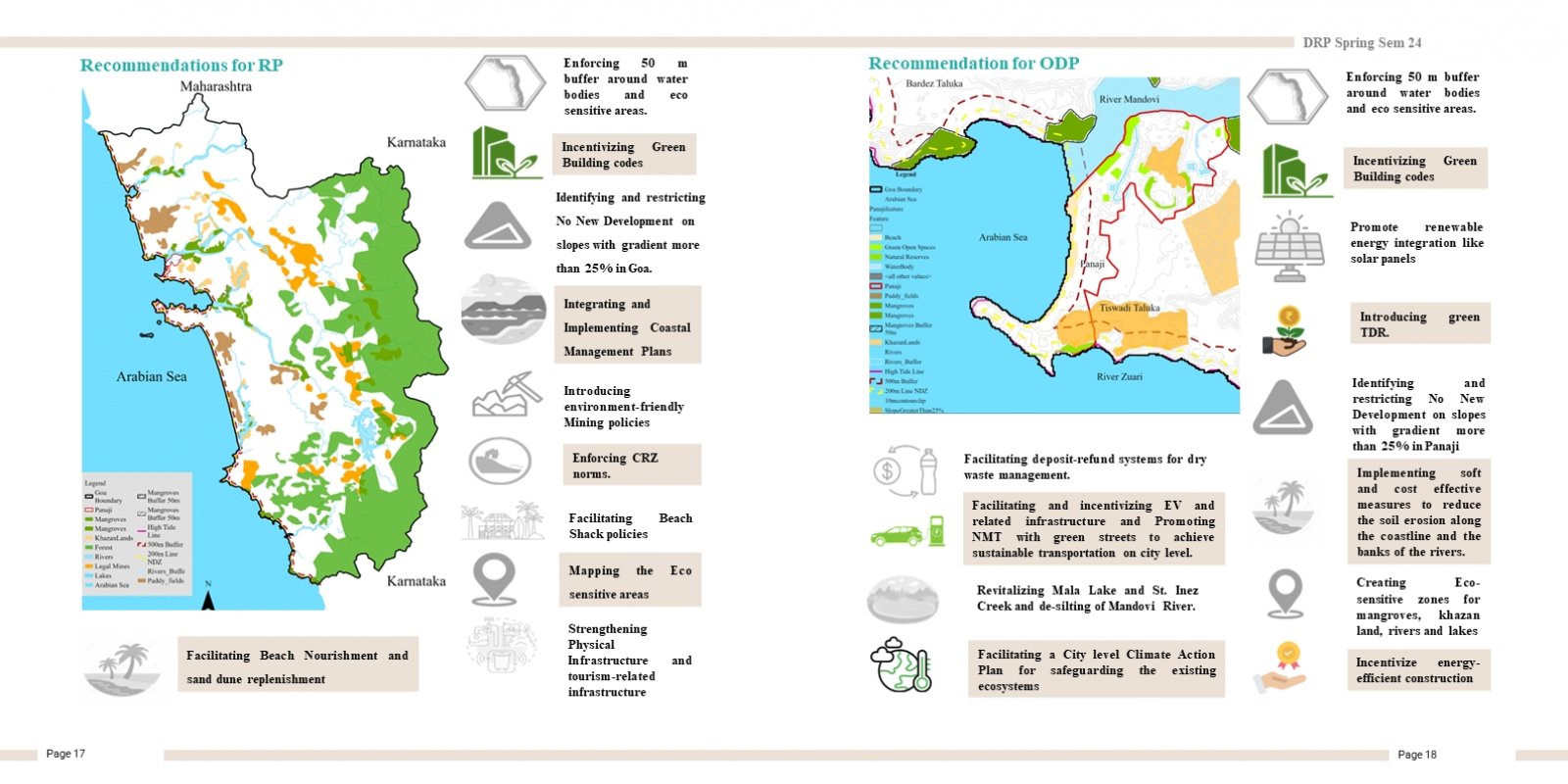Your browser is out-of-date!
For a richer surfing experience on our website, please update your browser. Update my browser now!
For a richer surfing experience on our website, please update your browser. Update my browser now!
Coastal cities in India are experiencing challenges because of the dual impact of rapid urbanization and climatic change. This research explores the intersection of urban planning, environmentally suitable and resilience in the context of a coastal city in India, aiming to develop strategies for mitigating risks and enhancing adaptive capacity. Drawing upon best practices and lessons learned from similar coastal cities worldwide, attempts will be to propose a framework for environmentally suitable and resilient urban planning tailored to the Indian context. Key components of the framework include sustainable land use practices, infrastructure development and eco-friendly tourism strategies. Panaji, the capital of Goa, and the surrounding state face significant challenges due to their coastal location. Unplanned development, sea level rise, and extreme changes in weather patterns threaten the environment, and livelihoods of Goans. This research project explores environmentally suitable and resilient urban planning strategies for Panaji and Goa. It examines existing vulnerabilities, analyses successful case studies from India and abroad, and proposes a framework for sustainable development. Through this research, aim is to devote to the growing body of understanding on sustainable urban development in coastal areas, providing frameworks, insights and recommendations that can inform policy-making and planning efforts in India and beyond.
